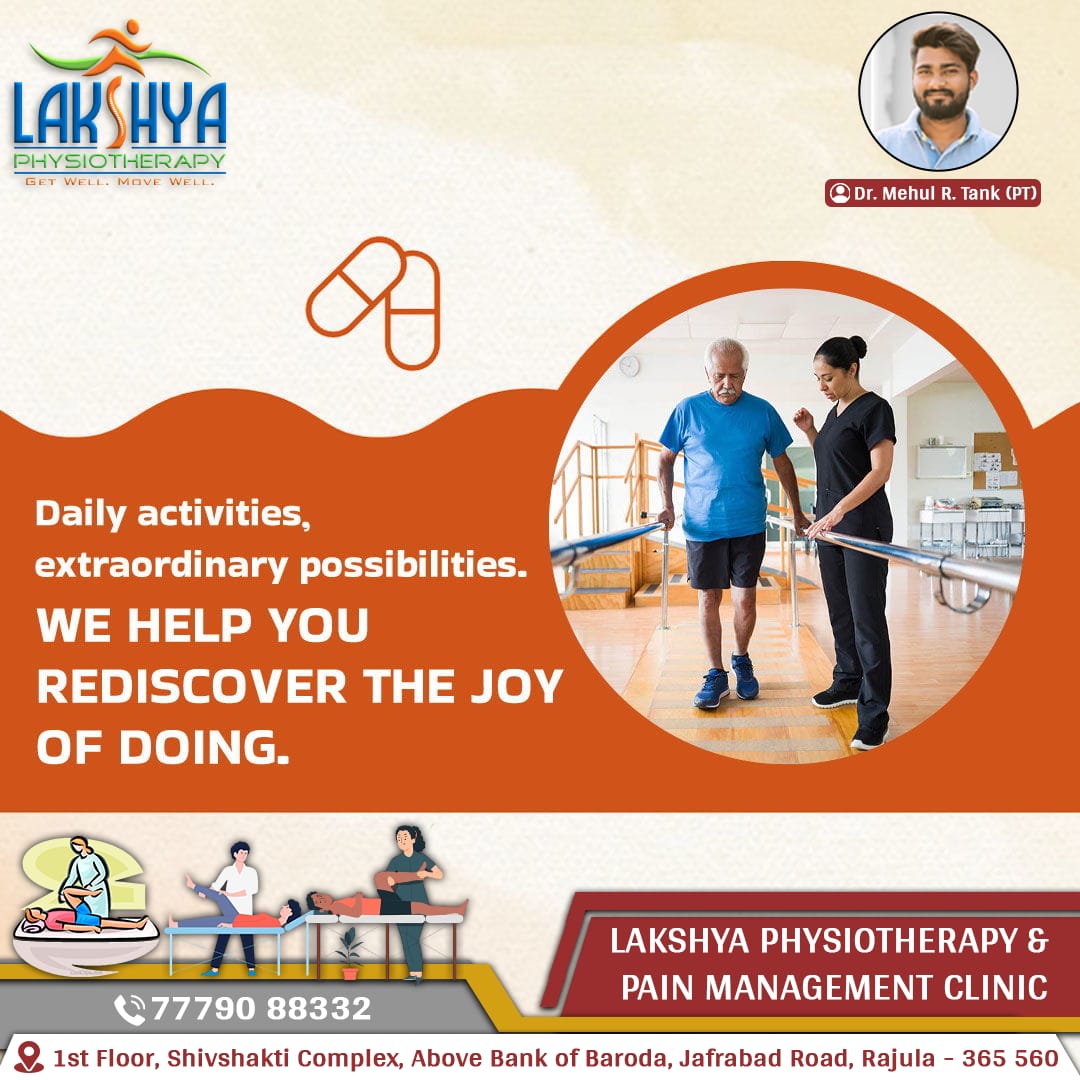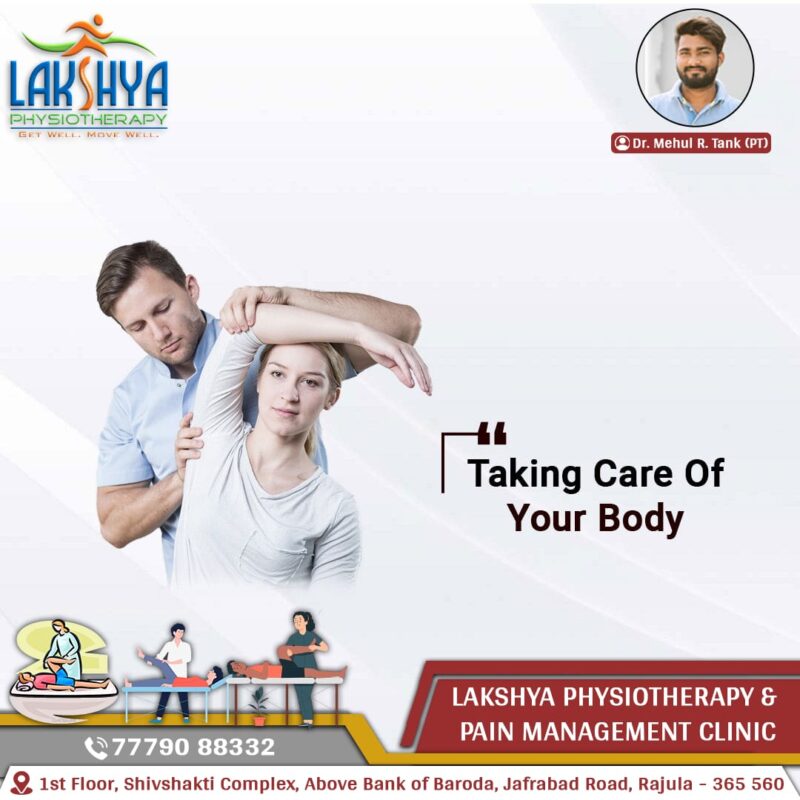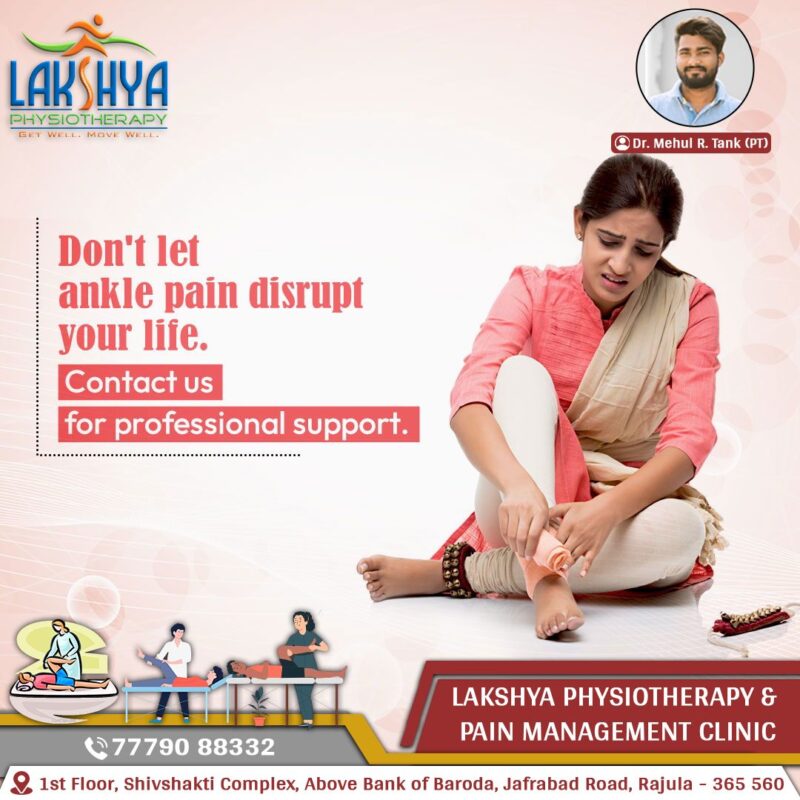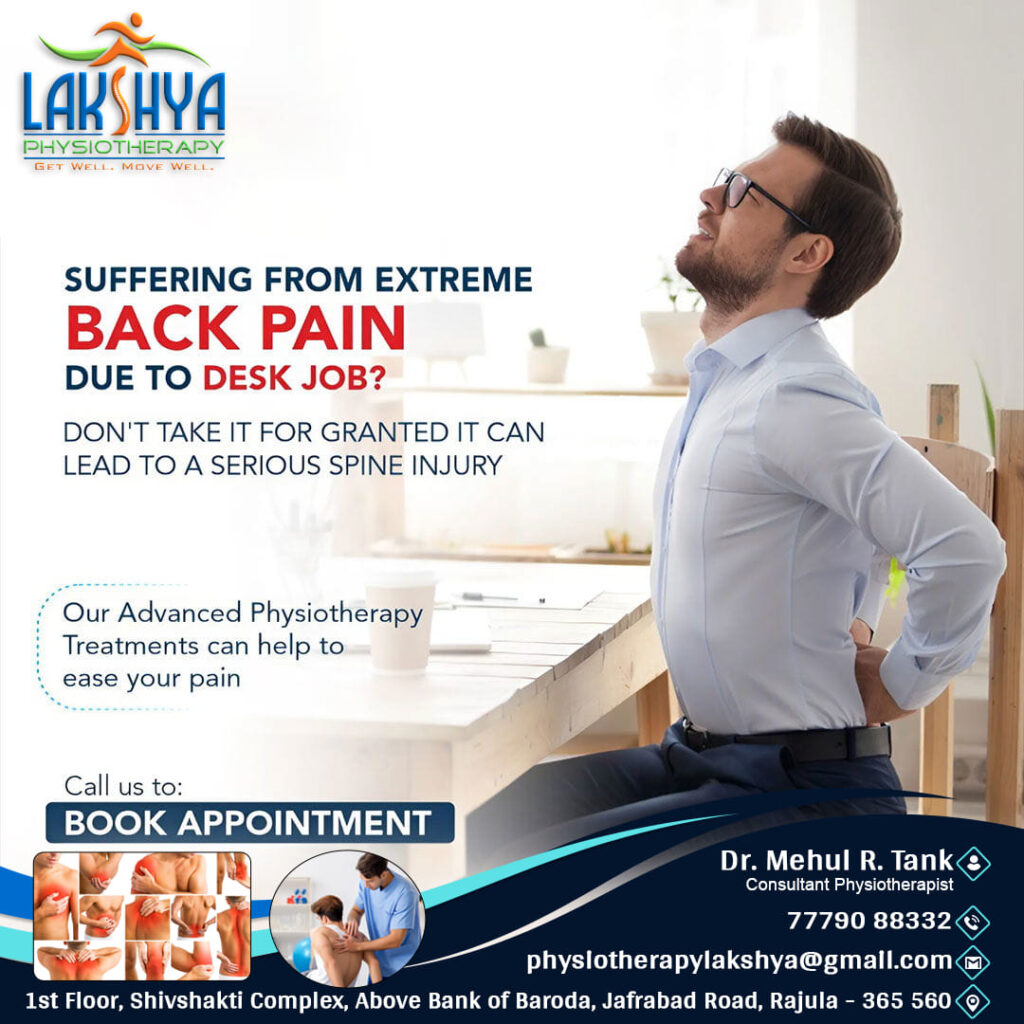Paralysis in Humans: Understanding, Managing, and Treating the Condition

Paralysis is a condition that can have a profound impact on a person’s life, affecting their mobility, independence, and overall quality of life. At Lakshya Physiotherapy & Pain Management Clinic, we believe in empowering individuals with the knowledge and care they need to manage paralysis effectively and work toward rehabilitation and recovery. This article explores the causes, types, and symptoms of paralysis, along with the role of physiotherapy in managing this complex condition.
What is Paralysis?
Paralysis is the loss of muscle function in one or more parts of the body. It can result from damage to the nervous system, particularly the brain, spinal cord, or peripheral nerves. Depending on the severity, paralysis can be partial (weakness) or complete (total loss of muscle function) and may affect one side of the body (unilateral) or both sides (bilateral).
Paralysis can either be temporary or permanent, depending on the underlying cause and the effectiveness of treatment and rehabilitation.
Types of Paralysis
Monoplegia:
Affects only one limb, such as an arm or a leg.Hemiplegia:
Affects one side of the body, commonly seen after a stroke.Paraplegia:
Affects both legs and sometimes the lower part of the torso, usually caused by spinal cord injuries.Quadriplegia (Tetraplegia):
Affects all four limbs and sometimes the torso, often resulting from severe spinal cord injuries.Facial Paralysis:
Affects the muscles of the face, often caused by nerve damage or conditions like Bell's palsy.
Common Causes of Paralysis
Stroke:
A stroke occurs when the blood supply to the brain is interrupted, causing damage to brain cells. This is one of the leading causes of paralysis.Spinal Cord Injuries:
Trauma to the spinal cord, such as in accidents or falls, can disrupt nerve signals, leading to partial or complete paralysis.Nerve Damage:
Conditions like multiple sclerosis, Guillain-Barré syndrome, or peripheral neuropathy can lead to paralysis by affecting the nerves.Cerebral Palsy:
This is a group of disorders that affect movement and posture, often caused by damage to the developing brain during birth or early childhood.Infections:
Diseases like meningitis, polio, or Lyme disease can cause paralysis by affecting the nervous system.Tumors:
Tumors in the brain or spinal cord can compress nerves and lead to paralysis.Other Causes:
- Neuromuscular disorders like ALS (Amyotrophic Lateral Sclerosis).
- Traumatic brain injuries.
- Certain autoimmune diseases.
Symptoms of Paralysis
The symptoms of paralysis depend on the underlying cause and severity. They may include:
- Loss of movement or control in the affected area.
- Muscle weakness or atrophy.
- Numbness or loss of sensation.
- Difficulty with balance or coordination.
- Changes in bladder or bowel function in severe cases.
Early diagnosis and treatment are critical to preventing further complications.
How Physiotherapy Can Help Manage Paralysis
Physiotherapy plays a vital role in the management and rehabilitation of paralysis. At Lakshya Physiotherapy & Pain Management Clinic, our goal is to improve the quality of life for individuals living with paralysis by focusing on mobility, strength, and independence. Here’s how we can help:
Customized Treatment Plans:
Every patient is unique. We develop personalized physiotherapy programs based on the type, severity, and cause of paralysis.Mobility Exercises:
We focus on exercises that enhance joint flexibility, muscle strength, and overall movement in the affected areas.Muscle Stimulation:
Techniques like electrical stimulation are used to activate muscles, prevent atrophy, and promote blood circulation.Balance and Coordination Training:
We help patients regain balance and coordination, which are often compromised due to paralysis.Gait Training:
For those with partial paralysis, gait training helps improve walking ability with or without assistive devices.Pain Management:
Techniques like manual therapy, heat/cold therapy, and ultrasound therapy are used to manage pain and discomfort.Rehabilitation Equipment:
We use advanced equipment like parallel bars, exercise bikes, and therapy bands to facilitate recovery.Home Exercise Programs:
We provide patients with exercises to perform at home to maintain progress and encourage independence.
The Psychological Aspect of Paralysis
Living with paralysis can be emotionally challenging. Depression, anxiety, and feelings of helplessness are common. At Lakshya Physiotherapy & Pain Management Clinic, we understand the importance of mental health and provide support and encouragement to help patients stay motivated throughout their rehabilitation journey.
Tips for Managing Paralysis
- Stay Active: Engage in regular physiotherapy and recommended exercises to prevent stiffness and promote recovery.
- Use Assistive Devices: Mobility aids like wheelchairs, braces, or walkers can enhance independence.
- Adopt a Healthy Lifestyle: A balanced diet and adequate hydration support overall health and healing.
- Seek Support: Joining support groups or talking to a counselor can help cope with emotional challenges.
- Be Patient: Recovery takes time, and consistent effort is key to achieving the best outcomes.
Why Choose Lakshya Physiotherapy & Pain Management Clinic?
At Lakshya Physiotherapy & Pain Management Clinic, we specialize in providing compassionate, evidence-based care to individuals with paralysis. Our experienced physiotherapists work closely with patients and their families to create a supportive and effective rehabilitation program. With state-of-the-art facilities and a commitment to excellence, we aim to help every patient regain their strength, confidence, and independence.
Take the First Step Toward Recovery
Paralysis doesn’t have to define your life. If you or a loved one is living with paralysis, trust Lakshya Physiotherapy & Pain Management Clinic to guide you on the path to recovery.
Contact Us:
- Phone: +91-7779088332
- Email: physiotherapylakshya@gmail.com
- Address: Shivshakti complex, Above Bank Of Baroda, Nr. Kohinoor Hotel, Jafrabad Road, Rajula, 365560.
Your health is our priority, and together, we’ll help you regain strength, mobility, and confidence.














